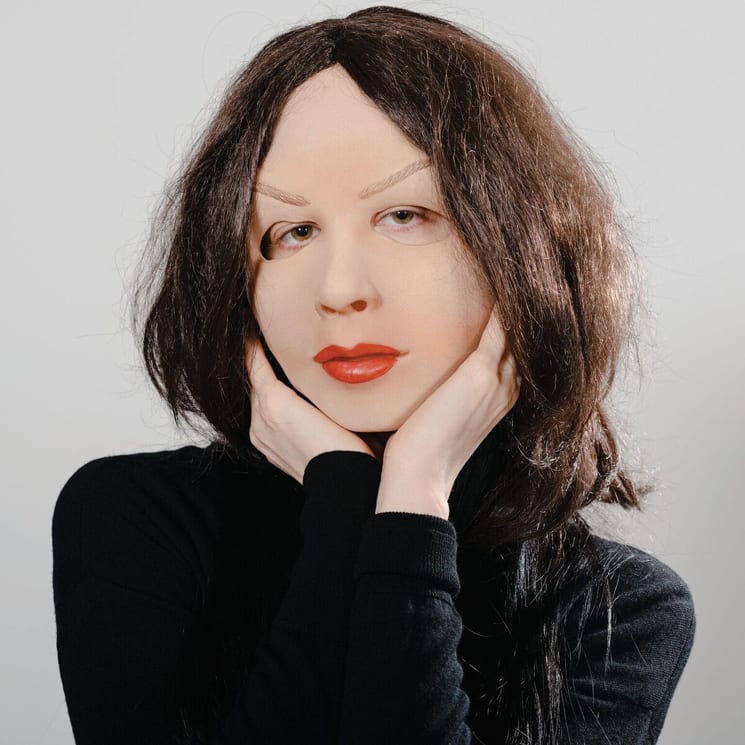Domenic Palermo is a magnet for cruel fate.
On his band Nothing's debut, Guilty of Everything, he longed for forgiveness after serving two years in prison for an assault charge, about which he maintains his innocence. 2016's follow-up, Tired of Tomorrow, brought more bad news; he sustained serious injuries from a violent robbery on tour. The dizzying and fuzz-soaked lullabies paralleled the extensive rehabilitation he required. Their third effort, Dance on the Blacktop, was created in the midst of another crisis; Palermo was diagnosed with early signs of Chronic Traumatic Encephalopathy, a neurodegenerative disease following a traumatic brain injury. By nature, shoegaze bands often sound weighty and miserable, but Nothing's nine new songs unsurprisingly wear their grim nature on sleeve.
The opening "Zero Day" finds Palermo tied to the thoughts in his head, sighing about oblivion and infinity against lacklustre, faint drums and buzzing guitar melodies. He alludes to his cognitive impairment and suggests imagery of a funeral service, but the song is otherwise gaze-by-numbers. "You Wind Me Up" is '90s buzz-rock lip service a-la Smashing Pumpkins, which comes as no surprise — the group worked with producer John Agnello at Dreamland Studios, which has birthed works by Dinosaur Jr. and Sonic Youth.
On "I Hate the Flowers," Nothing and Agnello are a fully realized pairing, lucratively toying with the troupe's background in the hardcore music (note: Jesus Piece vocalist Aaron Heard has taken on bass duties) and visions of wistful, gloomy shoegaze. Guitarist Brandon Setta's leads triumph on "Plastic Migraine," allowing Palermo's comely vocals to float through the song's chilling refrain of "Too tired to walk / Too stubborn to crawl / I've hit the wall." "The Carpenter's Son" and "Blue Line Baby" explore bassy, distorted riffs and mingling melody, but also highlight the band's overcast charisma through Philadelphia-referencing lyrical bits and conflicting themes of isolation placed over some of Dance on the Blacktop's prettiest moments. It makes for soothing results.
The narrative of Dance on the Blacktop is a hard-to-swallow reality check, but flourishes in the closing "(Hope) Is Just Another Word with a Hole In It." Nearing six minutes, the song is ambitious and rewarding. When Palermo's vocals and piano come to fruition in the mix, there is a sense of optimism, as though he might be smirking at his demons.
(Relapse)On his band Nothing's debut, Guilty of Everything, he longed for forgiveness after serving two years in prison for an assault charge, about which he maintains his innocence. 2016's follow-up, Tired of Tomorrow, brought more bad news; he sustained serious injuries from a violent robbery on tour. The dizzying and fuzz-soaked lullabies paralleled the extensive rehabilitation he required. Their third effort, Dance on the Blacktop, was created in the midst of another crisis; Palermo was diagnosed with early signs of Chronic Traumatic Encephalopathy, a neurodegenerative disease following a traumatic brain injury. By nature, shoegaze bands often sound weighty and miserable, but Nothing's nine new songs unsurprisingly wear their grim nature on sleeve.
The opening "Zero Day" finds Palermo tied to the thoughts in his head, sighing about oblivion and infinity against lacklustre, faint drums and buzzing guitar melodies. He alludes to his cognitive impairment and suggests imagery of a funeral service, but the song is otherwise gaze-by-numbers. "You Wind Me Up" is '90s buzz-rock lip service a-la Smashing Pumpkins, which comes as no surprise — the group worked with producer John Agnello at Dreamland Studios, which has birthed works by Dinosaur Jr. and Sonic Youth.
On "I Hate the Flowers," Nothing and Agnello are a fully realized pairing, lucratively toying with the troupe's background in the hardcore music (note: Jesus Piece vocalist Aaron Heard has taken on bass duties) and visions of wistful, gloomy shoegaze. Guitarist Brandon Setta's leads triumph on "Plastic Migraine," allowing Palermo's comely vocals to float through the song's chilling refrain of "Too tired to walk / Too stubborn to crawl / I've hit the wall." "The Carpenter's Son" and "Blue Line Baby" explore bassy, distorted riffs and mingling melody, but also highlight the band's overcast charisma through Philadelphia-referencing lyrical bits and conflicting themes of isolation placed over some of Dance on the Blacktop's prettiest moments. It makes for soothing results.
The narrative of Dance on the Blacktop is a hard-to-swallow reality check, but flourishes in the closing "(Hope) Is Just Another Word with a Hole In It." Nearing six minutes, the song is ambitious and rewarding. When Palermo's vocals and piano come to fruition in the mix, there is a sense of optimism, as though he might be smirking at his demons.
